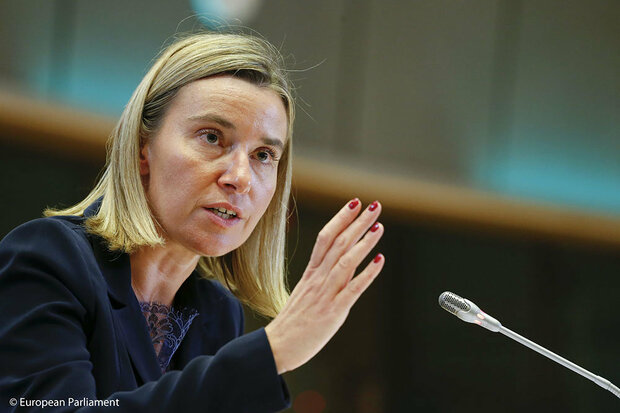She made the remark in a joint press conference with Pakistani Foreign Minister Shah Mahmood Qureshi in Brussels.
“I can confirm to you that we will have a Joint Commission [of the Joint Comprehensive Plan of Action, JCPOA] meeting this Friday. We are trying all we can, not as of today but since the very beginning of the signature of the agreement, the entry into force of the agreement and then the decision from the United States to get out of the agreement,” Mogherini said at the press conference on Tuesday.
“We have done, as the European Union, together with our Member States, with China, Russia and the rest of the international community, we have done all we could and we continue to do all we can to maintain the implementation of the agreement intact as it has been the case, until today,” she added.
“We will continue to do so in these days, in probably the most difficult conditions you could imagine. As I already had the opportunity to say before, the deal has, in itself, mechanisms and steps that can be taken in case of non-compliance with the agreement. But the focus we keep today and we will still keep even more so in these days that are probably the most difficult ones for the agreement, is to keep the agreement in place and to keep full compliance with the agreement,” she maintained.
Her remarks came as the US has ramped up its pressure policy against Iran by continuing to impose sanctions and taking undermining measures to weaken the country’s economic relations with the world ever since Donald Trump pulled Washington out of the nuclear deal last year.
Asked whether EU or E3 would trigger the implementation of the trade mechanism following Iran’s decision to reduce commitments to the JCPOA and its 60-day deadline to E3 for living up to their own commitments, Mogherini said “You will probably hear more from us in the coming days but, as you know, we have been working a lot with our Member States to put in place these mechanisms that allow legitimate trade with Iran to continue.”
“I believe that this is now ready to be operational and I hope that this is something that can help to keep Iran compliant with the agreement, as it has been so far and as we all want to see this continue to be the case,” she stressed.
The Instrument in Support of Trade Exchanges (INSTEX) is EU's special payment channel with Iran, which was announced by the EU in January to secure trade with Iran and skirt US anti-Iran sanctions after Washington pulled out of the 2015 Iranian nuclear deal (JCPOA) in May 2018.
Iran in turn has set up a matching channel called Special Trade and Finance Instrument (STFI). INSTEX, despite earlier claims, is said to deal essentially with food and medical trade, while Iran's insistence on having the mechanism in place is mainly for its oil exports.
MS/IRN83370318

























Your Comment